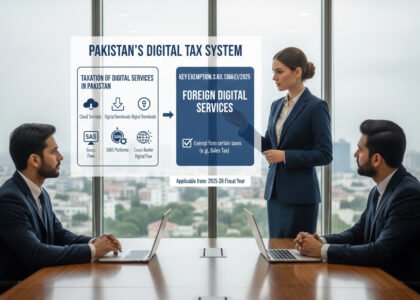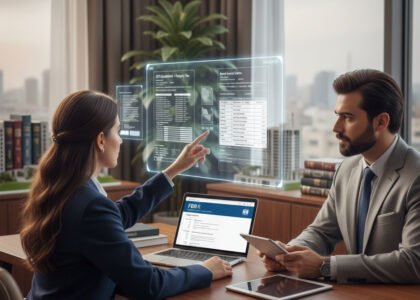[Citation: 2012 SLD 82 = 2012 PTD 1444 | ITA No.104/LB of 2011 | Judgment Date: 30-04-2012]
Case Title
Messrs Quality Home (Pvt.) Ltd., Lahore
vs.
Commissioner of Inland Revenue, RTO Lahore
Tribunal Bench
-
Judicial Member: Nazir Ahmad
-
Accountant Member: Khalid Aziz Banth
Counsel
-
For Appellant: Irfan Ilyas, FCA
-
For Respondent: Mrs. Humaira Maryum, D.R.
Law Involved
-
Section 21(l) — Deductions Not Allowed
-
Section 111(1)(b) — Unexplained Investment
-
Section 122(1) — Amendment of Assessment
-
Section 177 — Audit
Factual Background
-
Taxpayer, a private limited company engaged in real estate, filed a return declaring a loss of Rs. 233,529.
-
Case was selected for audit under Section 177.
-
During audit, taxpayer was found to have purchased a plot for Rs. 1.3 million in cash, which was claimed under “cost of sales.”
-
Taxation Officer disallowed this amount under Section 21(l), treating it as an inadmissible deduction due to non-banking mode of payment.
-
CIR(A) upheld the addition.
-
Taxpayer appealed before the Income Tax Appellate Tribunal (ITAT).
Key Legal Issue
Whether cost of a plot purchased on cash basis can be disallowed under Section 21(l) of the Income Tax Ordinance, 2001?
Appellant’s Argument
-
Section 21(l) applies only to expenses debited to the Profit & Loss Account, not to purchases, which are part of cost of goods sold.
-
The appropriate section for questioning the source of funds would have been Section 111(1)(b), not Section 21(l).
-
Relied on precedent: Messrs Farhan Food Industries, ITA No.468/KB of 2010.
Tribunal’s Observation
-
Section 21(l) is meant to disallow deductions made under revenue expenditure (like rent, salary, commission), not capital purchases or cost of sales.
-
Purchases cannot be equated with deductions.
-
Doctrine of ejusdem generis applies – the nature of expenses under Section 21(l) must be similar in kind to those listed.
Decision
-
The addition of Rs. 1.3 million made under Section 21(l) was held to be legally untenable.
-
The Tribunal deleted the addition, affirming that Section 21(l) does not cover purchases.
-
Suggested that if the Revenue had concerns about unexplained investment, Section 111(1)(b) should have been invoked.
Judgment Summary
“We are compelled to hold that the provisions of section 21(l) are only applicable to the expenses made in profit and loss account and cannot be invoked for the purpose of making addition on account of purchases.”
— Nazir Ahmad, Judicial Member
Legal Takeaway
-
Cash-based plot purchases, even if made in large amounts, cannot be disallowed under Section 21(l).
-
Revenue officers must carefully select applicable sections; otherwise, such additions risk being struck down as unlawful.
-
Proper classification of expenditure (capital vs revenue) is crucial for lawful assessment amendments.
Related Citation
-
Messrs Farhan Food Industries, ITA No.468/KB of 2010 (Unreported)
Practice Tip for Tax Professionals
Always analyze whether a payment is revenue or capital in nature before applying disallowance under Section 21(l). If a transaction appears suspicious due to cash dealings, Section 111(1)(b) may be more appropriate for unexplained investments.
FAQs
| Question | Answer |
|---|---|
| What does Section 21(l) of the Income Tax Ordinance, 2001 cover? | It covers disallowance of expenditures made outside the prescribed banking channels if they exceed Rs. 50,000 under one account head. |
| Is plot purchase considered an expense under Section 21(l)? | No, plot purchase is treated as a capital asset, not a revenue expense, and thus outside the scope of Section 21(l). |
| What is the significance of the ITAT ruling in Messrs Quality Home case? | It clarifies that Section 21(l) cannot be used to disallow capital purchases like plots. |
| What section should be applied for unexplained cash purchases? | Section 111(1)(b) dealing with unexplained investments. |
| Can tax officers use Section 21(l) to add plot purchases in assessment? | Not legally. Any such addition may be struck down on appeal. |
| Is this judgment applicable to all businesses? | Yes, particularly relevant for real estate and high-cash-transaction sectors. |
| What if a taxpayer makes large cash purchases? | FBR can question under Section 111(1)(b) regarding the source of funds. |
| Does this judgment protect taxpayers from disallowance of asset purchases? | Yes, where such purchases are capital in nature and not debited to P&L. |
| What is the precedent case relied upon? | ITA No.468/KB of 2010 titled “Messrs Farhan Food Industries.” |
| What is the role of Section 122(1)? | It allows FBR to amend assessments, which must be based on correct application of law. |
| What is Section 177? | It deals with selection and conduct of audit. |
| Can online transfers be exempted from disallowance under 21(l)? | Yes, as per the law, online transfers and credit card payments are treated as through banking channel. |
| What should a taxpayer do if wrongly assessed under Section 21(l)? | File appeal before CIR(A) and cite this judgment. |
| What is the implication for tax consultants? | They must analyze whether an expenditure is capital or revenue before advising on disallowance. |
| How should plot purchases be recorded in tax books? | As part of inventory or capital assets—not as expense. |
| Can FBR question cash transactions post-audit? | Yes, but they must use the correct provision—i.e., Section 111, not 21. |
| What was the declared income in this case? | The taxpayer declared a loss of Rs. 233,529. |
| What amount was disallowed by FBR? | Rs. 1.3 million (cost of plot purchase on cash basis). |
| What was the final outcome of the appeal? | Appeal accepted. Addition under Section 21(l) deleted. |
| Does this case create a binding precedent? | It holds persuasive value in similar fact patterns unless overturned by higher forums. |
Disclaimer
Disclaimer: This blog is provided for informational and educational purposes only. It does not constitute legal advice. For specific tax matters, always consult a qualified tax advisor or legal expert in Pakistan.






